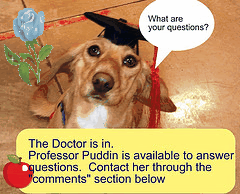Growling, snarling, barking are the only ways that a dog can tell you something is wrong. What if someone shoved your head into the ground just for filing a customer complaint?
Author Stanley Coren says that one of the reasons dogs bark is to warn the family that danger (or perceived danger) is near. What if you warned people about a fire and for your efforts, you received a punch in the face?
Growls are serious and should not be ignored but they should never be addressed aversively. At best, you never get to the underlying problem and at worst, you will create a dog who will bite without warning next time. Ian Dunbar says that suppressing a growl is like removing a ticker from a time bomb.
The other problem with punishing growling, snarling, barking: You confirm the dog's fears, and you make the the dog feel worse about the scary thing, not better. Example: Your dog barks at a child; you yell at your dog. The dog thinks, "I knew those kids were bad news, whenever they come around, I get yelled at. I better give a better warning next time to keep them away." The next time your dog sees a kid, he snarls. You, concerned that your dog is developing child aggression, yell and yank your dog. The dog is learning: "It's getting worse; I'm going to have to really amp up my warning. I don't want to bite those kids so I need to look really scary to make them go away."
The next time your dog growls at the kids, you get more concerned, so you punish your dog harder - you yell louder, hit your dog, kick your dog etc.. Eventually the dog might learn that his growling makes him get hurt. So the next time, he doesn't say anything to kids who approach. You, thinking your dog is better, allow the kids to get much too close for comfort, and your dog "bites with no warning" because you have punished away his warning signals.
Another thing that pet parents need to consider when their dogs bark, snarl, growl: The noticeable warnings (barking, growling, etc..) usually come long after a dog has tried to communicate something is wrong. Sadly a lot of humans miss dogs' subtle cues that something is wrong. The dog might have sniffed the ground, yawned, or turned his head long before the barking or growling started. Even a wagging tail can be a signal that something is wrong. A wagging tail does not always mean "I'm friendly."
Trainers see these cases all the time - "The dog bit with no warning." "The dog bit for no reason." The warning might have been trained out of the dog.
Dog Trainer Eric Letendre says that there is always a reason for a dog bite. See Letendre's blog post about how he got bitten because of aversive training methods.
So you can't ignore the problem and you can't punish the problem. What do you do? It depends on why the dog is growling. Usually desensitization and counter conditioning can fix a reactivity or aggression problem. It's very time consuming and should be handled by a seasoned professional
Remember that you don't have to follow a trainer's advice if you are uncomfortable with anything he/she says. While you are looking for a trainer, how do you help your snarly dog? Keep him/her away from the upsetting things until you work on counter conditioning and desensitization. If your dog snarls at kids and you see kids approaching, happily call your dog across the street with you, talking baby talk, making giggly sounds. If your dog lunges at bikes, take the dog to some quiet trails that don't allow bikes.
If your dog growls at other dogs, walk early in the morning or later in the evening when there are fewer dog walkers out. If your dog growls when humans approach her food bowl, don't approach her food bowl.
Stay tuned for more information on protecting our pets. Next: Avoidance
 |
No comments:
Post a Comment